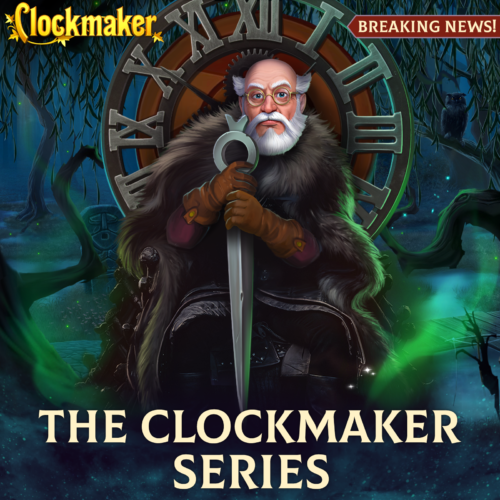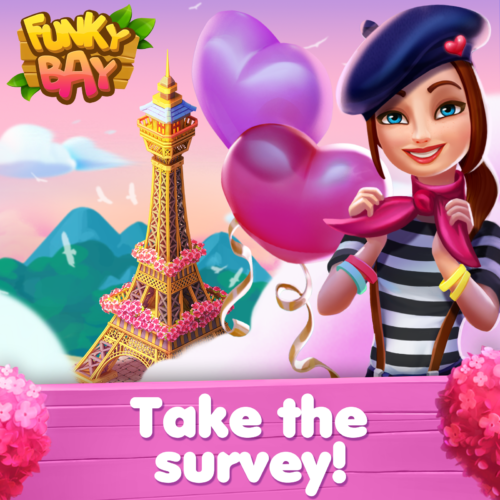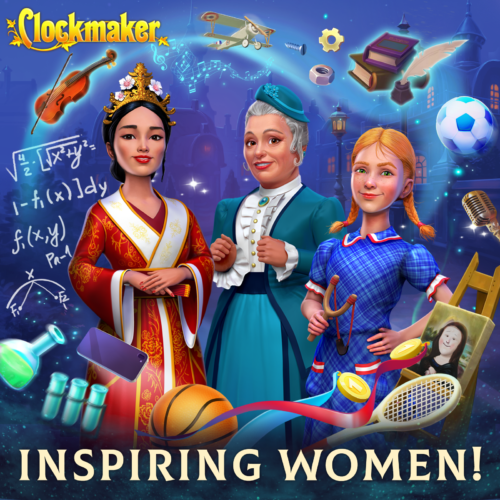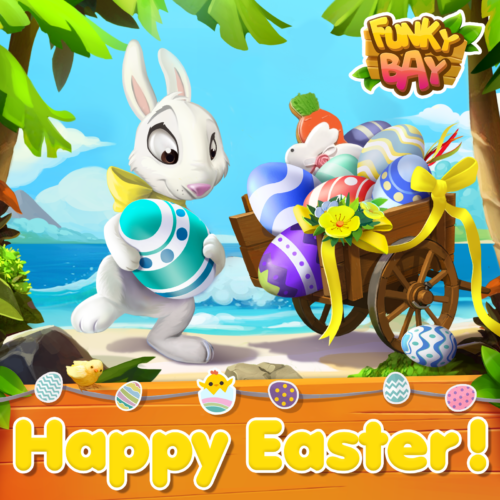How the community and support department is built in Belka Games
Maxim Kordonets — Head of Community & Support of Belka Games studio — in his column for readers App2Top.ru he shared his experience of how he rebuilt the community and support department in a mobile company in a year.

Maxim Kordonets
Intro
I got into Belka Games in the middle of 2018. Before the device, I knew that the company had a successful project — Clockmaker. During the interview, it turned out that the studio has hundreds of thousands of active users and only two employees in the Community & Support department.
I remember being pleased with the thought: it’s good that the team understands — it’s time to expand and develop the community department. I also really wanted to see these heroes fighting almost alone. And, of course, it became interesting whether it would be possible to build a direction from scratch.
Spoiler: everything worked out. After a year of working at Belka Games, our multinational department has 15 employees, half of whom work remotely (the article was written before quarantine time, now the whole company is working remotely).
In this regard, Belka Games gave me a unique experience. I got the opportunity to assemble a department almost from scratch. Before that, I spent five years in Wargaming in the positions of community and community lead. That time passed for me in a completely different way — serene. Wargaming is a huge company where all the processes are built up to you, you just do your job, slightly improving it.
I’m going to tell you about how I applied my previous experience in a new place.
First steps
The first steps are the most difficult. It was necessary to orientate and understand how everything works.
An additional complication was that I didn’t have much experience in mobile games. I had to study not only the company, but also a new niche for myself. My smartphone is filled with casual games. Immediately I started sending letters to their technical support: I needed to feel out how the work was being done by colleagues.
Along the way, internal documentation was put in order: articles were created and useful information was collected for new employees, with whom we soon began to strengthen the department. For example, I have prepared instructions and recommendations for working with reviews, alerts, concepts of the first social activities (yes, we actively use Confluence for the expanding knowledge base and internal documentation).
The most difficult thing was to establish communication between the community departments, support and development. It was important for us to make the interaction as comfortable and seamless as possible.
Community
So, before me, the community department consisted of one employee. The work was carried out on all projects and in all public sites at once. Because of this, it was unrealistic to work with feedback. There were not enough hands not only to collect, but also to process data.
First of all, an audit of all our official communities in various social networks was carried out (we were probably not there, except in RuTube).
As a result, we decided not to disperse resources, but to concentrate on the main platform for us — Facebook. The plan was as follows:
- increase activity in the group;
- increase the number of subscribers;
- start working seriously with the core audience.
Below are the key decisions and innovations that we have made for this.
- We strengthened the department by hiring our own 2D artist, who began to prepare all the graphics for Facebook. This was done in order not to pull artists from game projects. Thus, we stopped depending on the workload of project personnel and were able to increase the amount of content. This allowed us to increase the number of posts in the group to 5-6 per week.
- Diversified the content. If earlier it was only announcements of patches and events, now entertainment (games, contests) and educational content (guides, videos) have been added to them.
- We have introduced planning and content plans that take into account game events, holidays and key dates. All publications in our social networks are planned for a month in advance, the schedule is drawn in 2-3 weeks. The table shows posts and in-game news, as well as the dates of events, updates, etc.).

- We have set up the interaction of the community department with the development. For example, narrative specialists and game designers are our regular guests. They order surveys and research on questions and hypotheses of interest to them.
- We have built a process for working with reviews in the App Store and Google Play. Now we process almost all the reviews. This has a positive effect on assessments: people often change their assessment after the answer, if they were helped in solving a problem or simply reacted positively.
- In-game news functionality was introduced in Clockmaker and Funky Bay. It allowed redirecting people from the game to the group. Thanks to this, a core of loyal fans began to form on the basis of the group, communication with whom helps to develop the project, as well as, of course, to retain them.
- Work was organized with volunteers, whom we found among our loyal players. Thus, we were able to cope with the growing volume of tasks (we had to operate on two or three projects at once).First of all, we were looking for administrators of fan groups for our games, as well as users who were the most active commentators. We contacted them, thanked them for their activity and offered to help us. In most cases, the players willingly agreed. I myself was a moderator of the World of Tanks forum at one time, so I understood the usefulness of the volunteer corps. Loyal players help us with prompt responses in the comments of the group, promptly report problems in the game.We nurtured community managers from our support agents. The exception is the guys with knowledge of Chinese and Japanese. We didn’t raise them, but we hired them to expand our presence in Asia.
- We have launched a weekly community digest for our game developers. It is compiled every Friday separately for each of the projects. Digest is a document that contains player reviews and complaints, feedback on game events, a list of technical problems, top calls from technical support, application evaluation statistics. In general, this is a complete slice of the current state of the game and the community, on the basis of which developers can make decisions and improve the project.
At the moment, each of our projects has its own community manager who is responsible for:
- community development on Facebook (including for creating a content plan);
- the content itself in the community (and its creation in conjunction with artists);
- the work of volunteers;
- processing and collecting feedback.
- audience research.
In addition to game projects, our community department also develops the company’s brand both internally (informs employees about studio news) and externally (prepares posts for corporate Facebook, LinkedIn and VKontakte groups).
Support
At the start we had:
- one support agent;
- one account in ZenDesk, which was not configured in any way, but was a bucket into which all applications for several projects were poured. 90% of these applications were not processed. Because of this, we had a large number of complaints in the comments in the stores. It also had a bad effect on grades;
- general documentation;
- the processes could be described as “controlled chaos”.
The idea of outsourcing support was immediately dismissed. We wanted to make it as high-quality as possible. The plans were to integrate support with the Community and QA departments. I wanted to build a system in which it was possible to control ticket processing at all stages.
The main difficulty was that it had to be created from scratch. We decided not to take on everything at once: we set priorities and got to work.
First of all, we prepared the ground for the expansion of the department — one agent was clearly not enough. Brief FAQ’s on the most common problems for agents have been developed, a small database has been collected on a tool for working with the player’s game progress (our internal Charger program). We also set up auto-responses for the most common cases in order to somehow optimize the work with small human resources and set the main KPIs for support agents.
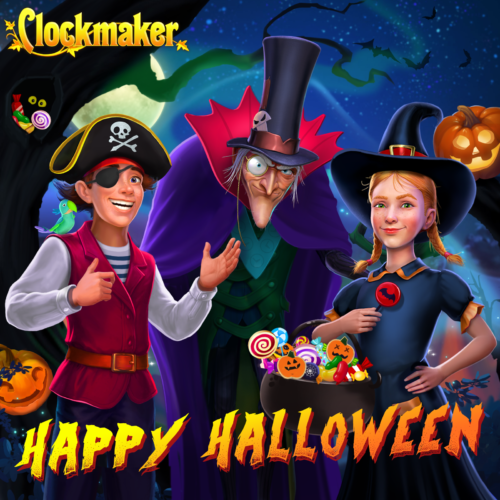
For a serious support department, this was still not enough. The work started bubbling up later, when we attracted experienced employees and began to improve ZenDesk, our main support tool.
We have configured the following things in it:
- applications were divided by sources: applications began to be correctly divided by projects and fall into separate dashboards (for example, if an agent works with only one project, he receives applications only for this project);
- a queue system has been introduced (applications are now prioritized according to the specified parameters);
- we have introduced the tagging of applications, which occurs based on keywords either manually or automatically;
- we have made a system that can prioritize applications based on tags (for example, it processes applications on important issues, billing first of all), it also processes all relevant applications at once in case of a massive problem;
- we improved the statistics we received: it was important for us to better understand what is happening with the game in technical terms, so we set up weekly reporting and regularly give important information on technical problems to developers.;
- we introduced control over agents, which became relevant after the increase in the support team. We needed to get information about: how many applications the agent processes, how much it spends on average on solving one application, what responds to users. Important: these indicators are open to our agents, respectively, they can monitor their KPI in real time and understand their effectiveness. For example: average number of processed applications per day, application processing speed, user satisfaction index (CSAT).
How did we assemble a team in Community & Support?
We went from creating a portrait of the candidate. He’s next for us:
- likes and plays games (not necessarily mobile);
- graduate of the Faculty of Foreign Languages (knows English and/or Chinese/Japanese well);
- perhaps he had some experience in the service sector or as a translator.
So we have assembled a team of guys who are interested in learning and developing in the field of Community/ Support, as well as flexibly adapt to various tasks, which is necessary in a developing department.
We try to select employees who are close to us in culture, which is based on three things:
- joint solutions;
- priority of quality;
- professional development.
At the moment, the process of adapting a beginner is fast. When training an employee, several colleagues are involved. In other words, the mentor is not just one person, but almost the entire team. Thanks to this, a new employee gets acquainted with colleagues in practice and joins easier. The support agent starts working with applications in a few days.
The main thing in training is to start to understand our games well, learn how to work with tools, understand how our processes are going and how to interact with other departments. It is also important that the employee knows and understands the audience of our games, then it is much easier to work with player complaints.
Processes
We are not fans of bureaucracy, but there were important problems that cannot be solved without structured processes.
I mentioned a little above that we wanted to track “tickets” at all stages. To do this, we needed to establish cooperation:
Support → QA → Development
Previously, the work was carried out haphazardly. Now, we regularly identify bugs based on player requests, collect all the necessary information and pass it along the chain.
We receive feedback at all stages of the bug report, so we can properly inform the end user about how to solve the problem or at what stage the solution is.
In addition, with the help of properly configured statistics, we can provide more advanced and useful information for developers, for example, about the application version, platform, localization, etc.
Plans
The plans are big. Now we are continuing to scale the department, as our projects continue to grow the audience and are preparing to launch several new game projects.
Over the past few months, we have also been working on creating VIP Support. This is both a service and a department that will deal with interaction with our most paying players. VIP Support is being built from scratch, we conduct various tests, and even attracted a specialist from the States for its development.
We are also creating a single internal toolkit for support agents to work with all our games. It will allow the staff of the department to work better with the requests of players, to solve both technical issues and those related to billing faster.
In general, now the Community and Support departments are at a mature stage, I would like to thank the team separately for this. Without them, I would not have been able to tell about such successes.
Also on the topic:
Is there any news? Share it with us, write to press@app2top.ru
